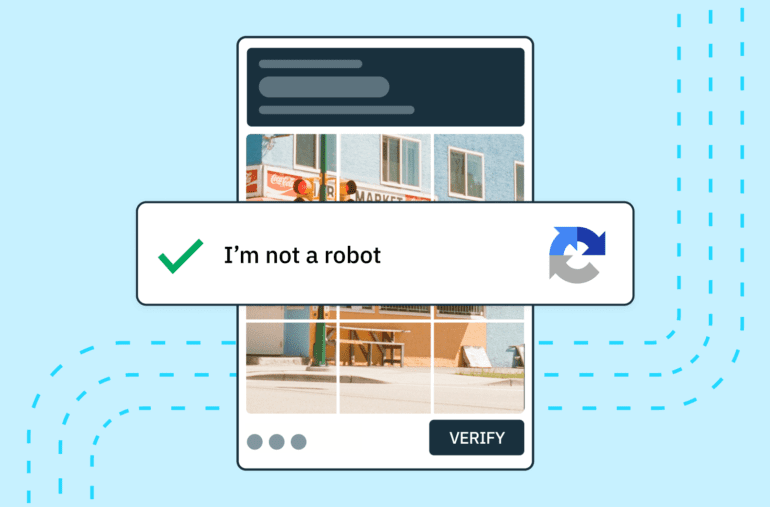TL;DR:
- AI bots now surpass humans in solving CAPTCHA challenges with up to 15% higher accuracy.
- Traditional CAPTCHA and reCAPTCHA systems prove inadequate against evolving AI capabilities.
- Recent research shows AI bots outperform humans in decoding various CAPTCHA schemes.
- Experiment involving 1,400 participants reveals AI bots’ accuracy and speed superiority.
- Cognition expert highlights the challenge of striking a balance in designing effective CAPTCHAs.
- The future of CAPTCHAs and their worth on websites depends on their impact on user experience.
Main AI News:
In the digital realm, the intricacies of AI have reached a level where they mirror the intricate workings of the human mind and the discerning prowess of human vision. It has become patently clear that the conventional CAPTCHA system, an acronym denoting Completely Automated Public Turing test to tell Computers and Humans Apart, is futile against the evolved capabilities of AI. The futility of CAPTCHAs is accentuated by the fact that AI-powered bots have surged ahead with an accuracy rate surpassing that of their human counterparts by an impressive 15%.
Perhaps you, as an internet user, have experienced the exasperation of navigating through a maze of puzzles that insist on your ability to identify mundane objects like traffic lights, buses, and crosswalks. This interactive challenge, known as CAPTCHA, was introduced as a security measure to shield websites from fraudulent activities without causing inconvenience to legitimate users. The concept behind CAPTCHA is to allow only authentic users access, while thwarting automated incursions.
A Technological Shift: Reimagining CAPTCHA’s Purpose
Notably, tech giant Google foresaw the impending obsolescence of traditional CAPTCHA technology, replacing it in 2019 with a more sophisticated alternative known as reCAPTCHA. Aaron Malenfant, the adept technical lead of Google, predicted that the traditional CAPTCHA concept would fall into obsolescence within a decade, as rapid advancements in technology would render the Turing test passive, operating inconspicuously in the background.
Malenfant’s prediction has manifested as reality. The trajectory of Artificial Intelligence (AI) has seen it evolve with remarkable velocity, outstripping the reCAPTCHA model intended to discern users’ authenticity and individuality. The AI bots’ ascension to dominance hinges on their ability to replicate the cognitive patterns and visual comprehension intrinsic to human cognition. In fact, the capabilities of AI bots now rival, and in some respects, even surpass those of their human counterparts.
Research Highlights the AI Dominance over CAPTCHA
Recently published research, albeit yet to be peer-reviewed, showcases the triumph of AI-driven attacks on a spectrum of CAPTCHA methodologies. Spearheaded by a consortium of researchers from the University of California, Irvine, ETH Zurich, Lawrence Livermore National Laboratory, and Microsoft, this study elucidates how AI bots have not only outstripped human proficiency in deciphering CAPTCHAs but also managed to emulate human-like behavior to confound the very safeguards intended to repel them.
The researchers orchestrated an extensive experiment involving 1,400 participants. Their mission was to assess the efficacy of CAPTCHA puzzles used by approximately 120 of the world’s most popular websites out of the top 200. Astonishingly, the AI bots showcased an accuracy range spanning from 85% to a staggering 100%, with the majority comfortably exceeding the 96% mark. This achievement markedly surpasses the performance of human participants, whose accuracy fluctuated between 50% and 85%.
Swift Solution, Swift Execution: The AI Advantage
The AI bots were further impressed by solving the puzzles in considerably shorter timeframes across the board, with the exception of the reCAPTCHA system. Even in the case of reCAPTCHA, the bots’ timing—17.5 seconds—barely lagged behind the humans’ 18 seconds. The experiments were orchestrated on Amazon’s MTurk platform, employing diverse CAPTCHA types such as identifying chimneys and boats, image rotations, checkbox validation, and deciphering distorted text.
Elevating this prowess to a real-world context, the research paper shed light on how AI bots exhibit swifter puzzle-solving capabilities than humans in a contextually accurate setting. The study’s revelations were perhaps best encapsulated by Gene Tsudik, one of the contributing researchers: “We do know for sure that they [the tests] are very much unloved… But people don’t know whether that effort, that colossal global effort that is invested into solving CAPTCHAs every day, every year, every month, whether that effort is actually worthwhile.”
Navigating the Enigma of the Future: Unearthing CAPTCHA’s Worth
Cengiz Acartürk, a cognitive and computer scientist hailing from Jagiellonian University in Kraków, Poland, proclaims the conundrum faced when devising more formidable CAPTCHAs. The inherent challenge lies in achieving equilibrium – if CAPTCHAs become excessively intricate, users may relinquish the effort. The question of whether CAPTCHA puzzles merit inclusion on a website ultimately hinges on the significance of the subsequent user experience. Should the next step in the user’s journey be crucial enough, a formidable puzzle could potentially safeguard the endeavor, ensuring both security and user engagement.
Conclusion:
The escalating proficiency of AI bots in outsmarting CAPTCHA systems underscores a transformative shift in the online security landscape. Traditional safeguards are no longer a reliable barrier against sophisticated AI-driven attacks. This paradigm shift demands an innovative approach to web security, where user experience and protection are delicately balanced. The market must adapt swiftly to embrace new, adaptive security measures that not only ward off AI-driven threats but also provide a seamless user journey.

